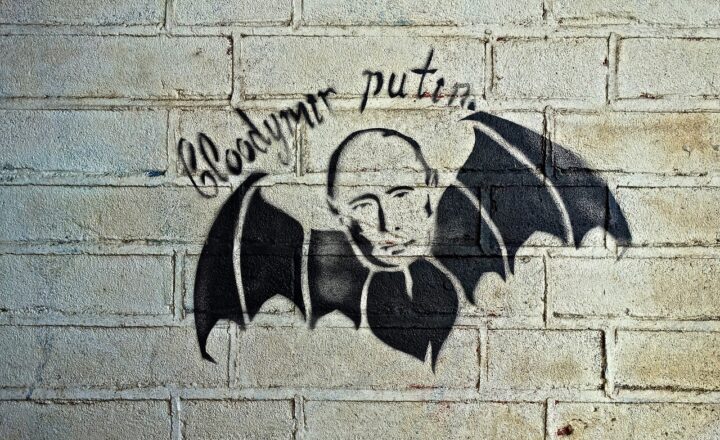Why We’re So Fascinated by Serial Killers in Pop Culture
November 9, 2024

The complexities of human behavior have always captivated our imaginations. Among the myriad of topics that pique interest, few are as enthralling—and chilling—as serial killers. From literary works like ‘The Silence of the Lambs’ to blockbuster films like ‘Seven’ and rising series such as ‘Mindhunter,’ serial killers have become a staple in our cultural narrative. But why does society seem endlessly fascinated by these real-life criminals, often at the expense of empathy for their victims? This article delves into the psychological, social, and cultural components that fuel this obsession.
1. The Psychology Behind the Fascination
Understanding the psychological factors behind why we are drawn to serial killers can shed light on our darker instincts. Psychologists suggest several reasons:
- Curiosity About Evil: Humans have an innate curiosity about what lies beyond societal norms. Serial killers represent an extreme deviation from expected behavior, which invokes both fear and intrigue.
- The Desire for Superiority: Analyzing the thought processes and behaviors of serial killers may seem like a way to reassure ourselves about our moral standing. By studying them, we can understand how normal individuals can deviate into darkness.
- Media Influence: With the rise of true crime podcasts, documentaries, and dramatized portrayals, the involvement of media in shaping our perceptions cannot be underestimated. The allure of suspenseful narratives often overshadows the grim realities.
- Empathy and Alienation: For some, there exists a dichotomy between the desire for understanding and horror. People may feel empathic connections to the victims while also feeling drawn to the killers, creating a complex emotional reaction.
2. The Allure of the Dark Side
The fascination with serial killers also stems from humanity’s voyeuristic tendencies. The darker aspects of life—death, malice, and chaos—intrigue us because they lie beyond our everyday experiences:
- Breaking Society’s Rules: Serial killers symbolize the ultimate rebellion against social and moral norms. Their stories challenge us to confront uncomfortable truths about human nature.
- Gothic Romance: The image of the tormented killer evokes a sense of tragedy and romance. Many depictions blur the lines between hero and villain, attracting viewers to the complexity of their narratives.
- Thrill and Suspense: Whether in films or literature, the suspense built around serial killers keeps audiences on the edge of their seats, creating an adrenaline rush. The thrill of being scared, while safely ensconced in our homes, is an appealing paradox.
3. Serial Killers in Media
Serial killers are pervasive in our popular culture, shaping narratives across various media channels:
- Film: Movies like ‘Zodiac,’ and ‘Monster’ provide dramatized insights into the minds of killers while also exploring the impact of their actions on society. These films depict the psychological complexities and social ramifications, inviting audiences to question justice and morality.
- Television Series: Shows like ‘Dexter’ and ‘Mindhunter’ invite the audience to sympathize with or understand the characters, often portraying killers as tragic figures. These series blur the lines between hero and villain, allowing viewers to confront their own biases.
- Documentaries and True Crime: The true crime genre has exploded in popularity over the last decade. Documentaries examine the facts and motivations behind these crimes, often with heartbreaking interviews from victims’ families, bringing a sobering reality that contrasts starkly with fictional narratives.
4. The Impact of Social Media
In the digital age, social media platforms facilitate an interrogation of serial killer narratives like never before. The internet has fostered an environment where both amateur sleuths and enthusiasts discuss, dissect, and debate:
- Viral Sensation: Social media enables discussions surrounding real-life crimes and associated myths, leading to the spread of misinformation and creating false narratives that romanticize killers.
- Glorification: The accessibility of content glorifying serial killers exacerbates fascination. Memes, fan communities, and merchandise created around killers lead to discussions often detached from the victims’ suffering.
5. The Ethical Implications
As we navigate our fascination with serial killers in pop culture, it’s essential to address the ethical considerations:
- Victims’ Dehumanization: The glamorization of killers can overshadow the humanity of victims. It’s vital to remember that each statistic represents a life lost, and commodifying trauma can desensitize audiences.
- Responsibility of Creators: Filmmakers, writers, and personality-driven creators hold the power to shape public perception. Ethical storytelling that respects victims and contextualizes crimes within societal frameworks fosters more responsible engagement.
Conclusion
The fascination with serial killers in pop culture taps into our deepest fears and curiosities. While it’s essential to engage with this topic critically, acknowledging its cultural implications helps foster a more nuanced understanding. Serial killers may embody the dark corners of the human psyche, but our responsibility lies in remembering the humanity of the victims and questioning the narratives we consume and propagate.
Our perpetual engagement with these narratives can teach us as much about ourselves and society as it does about the individuals who cross the line into darkness. As we delve deeper into obsession with such figures, let us remain vigilant in our empathy and aware of the larger stories at play.








